1984 Summer Olympics boycott
| Part of a series on |
|
_boycotting_countries_(blue).png)
The boycott of the 1984 Summer Olympics in Los Angeles followed four years after the U.S.-led boycott of the 1980 Summer Olympics in Moscow. The boycott involved 14 Eastern Bloc countries and allies, led by the Soviet Union, which initiated the boycott on May 8, 1984. Boycotting countries organized another major event, called the Friendship Games, in July and August 1984. Although the boycott led by the Soviet Union affected a number of Olympic events that were normally dominated by the absent countries, 140 nations still took part in the games, which was a record at the time.[1]
Announcement of boycott
The USSR announced its intentions to boycott the 1984 Summer Olympics on May 8, 1984,[2] citing security concerns and "chauvinistic sentiments and an anti-Soviet hysteria being whipped up in the United States."[2] A US official said the country had ignored suggestive comments by the Soviets in the weeks building up to the announcement and that, in spite of all the indications, the United States was "absolutely dumbfounded" when the official announcement arrived.[3]
After the announcement, six more nations joined the boycott, including Bulgaria, East Germany (on May 10), Mongolia and Vietnam (both May 11),[4] and Laos and Czechoslovakia (both May 13). China formally confirmed that it would be present at the games in Los Angeles, while the Laotians and Czechoslovaks announced their decision to boycott the event.[5]
Later, Afghanistan also decided to boycott the event, becoming the eighth country to boycott the 1984 Summer Olympics.[6] Even later, Hungary (May 16) and Poland (May 17) became the ninth and tenth communist countries to join the boycott. Hungary claimed the lives of its athletes would be put in danger if they were to spend time in Los Angeles. On the other hand, Poland said that the United States was engaging in a "campaign aimed at disturbing the Games".[7][8]
On May 24, Cuba became the eleventh country to announce its participation in the boycott, making front-page news in the United States because it was a "serious blow to boxing and baseball".[9] South Yemen was the twelfth country to remove itself from the event (May 27); the Los Angeles Times stated that this was due to their "Marxist" connections.[10] North Korea was the thirteenth nation to boycott the 1984 Olympics.[11] Ethiopia became the first African state to participate in the boycott, followed by Angola.[12]
Iran had earlier decided to boycott the 1984 Summer Olympics because of "United States interference in the Middle East, its support for the regime occupying Jerusalem, and the crimes being committed by the U.S.A. in Latin America, especially in El Salvador".[13] Iran and Albania were the only countries to not attend both the 1980 Moscow and the 1984 Los Angeles Olympics. Libya also boycotted the Olympics after Libyan journalists were refused entry into the United States in July, along with the 1983 ban upon US exports to Libya and a renewal of bans upon travel to Libya by holders of US passports.[14] Libya and Ethiopia were the only nations to boycott both the 1976 Montreal and 1984 Los Angeles Games.
In addition, Albania did not attend any games from 1976 to 1988, although there was no official explanation for their absence at the 1976 Montreal Olympics and 1988 Seoul Olympics. Politically, Albania allied with China after the Sino-Soviet split, remaining antagonistic towards the Soviet Union; however, it also opposed China's rapprochement with the United States in the late 70s, resulting in the Sino-Albanian split. A similar antagonism towards both superpowers existed in Iran since 1979. This resulted in Iran and Albania boycotting both the 1980 and 1984 Olympics independently without endorsing the boycott on the opposing side.
Revenge hypothesis
Jimmy Carter declared that the United States would boycott the 1980 Olympic Games in Moscow, with 65 other countries joining the boycott.[15] This was the largest Olympic games boycott ever. In 1984, three months before the start of the 1984 Summer Olympics in Los Angeles, the Soviet Union declared it would "not participate" in the games, due to the commercialization of the games which goes against the principles of the Olympic movement, and indeed the XXIII Olympiad ended up being the first Olympics since 1932 to make a profit by a host country.[16] The Soviets also claimed that a lack of security for their athletes was a concern. 13 other countries joined in the boycott.[17]
Most of the world's media interpreted the Soviet boycott as retaliation for the US boycott of the 1980 Moscow Games,[18][19] which had been in response to the 1979 Soviet invasion of Afghanistan,[18] whereas the Soviet media repeated the government line that the boycott was a safety measure to protect their own athletes. However, no threat to Eastern Bloc athletes was ever discovered, and the athletes from the Eastern Bloc country that did attend the 1984 games in Los Angeles—Romania—encountered no problems, and in fact were widely cheered above all other visiting nations at the Opening Ceremonies when they marched into the Coliseum. Romania ended up finishing third in overall medal count at the Games. The 1984 Olympics did in the end gather criticism by foreign delegations for its over-commercialization of the games, including the aspect of appointments as official Olympic sponsors, corporations who pay organizers a fee in return for being able to use the Olympic logo in their advertisements.[20]
Among those subscribing to the "revenge hypothesis" was Peter Ueberroth, the chief organizer of the 1984 L.A. Games, who expressed his views in a press conference after the boycott was announced, on the same day that the Olympic torch relay in the United States began in New York City. U.S. President Ronald Reagan later stated his belief that the Soviets feared some of their athletes might defect. As well, President Reagan and his administration agreed to meet all of the demands of the Soviet Union in turn for the Soviet Bloc's attendance at the 1984 Olympics, marking a stark contrast in Reagan's "hawkish" views on Cold War foreign policy.[21] As more countries withdrew, the IOC announced on the deadline week that it would consider extending the deadline for entry into the Olympics.[22] The three top medal winners from the 1980 Games (which was the subject of a boycott by sixty six nations) in Moscow were among the boycotters, and media analysis noted this would weaken the field of competitors in a number of sports.[23] However, it was later disclosed that both the Soviet Union and East Germany boosted their performances with the help of state-run steroid programs.[24][25]
Soviet doping plan
Documents obtained in 2016 revealed the Soviet Union's plans for a statewide doping system in track and field in preparation for the 1984 Summer Olympics in Los Angeles. Dated prior to the country's decision to boycott the Games, the document detailed the existing steroids operations of the program, along with suggestions for further enhancements. The communication, directed to the Soviet Union's head of track and field, was prepared by Dr. Sergei Portugalov of the Institute for Physical Culture. Portugalov was also one of the main figures involved in the implementation of the Russian doping program prior to the 2016 Summer Olympics.[26] Filmmaker and director of 2017 movie Icarus Bryan Fogel has said that stricter doping controls might have been the main reason for the Soviet boycott.[27]
Boycotting countries
Listed in the chronological order of their withdrawal, not by alphabetical or any geographical order. 15 or 18 (from different sources) in all.

.svg.png)
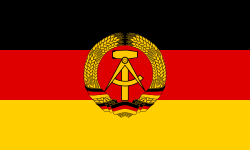
.svg.png)

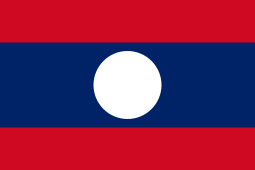

.svg.png)



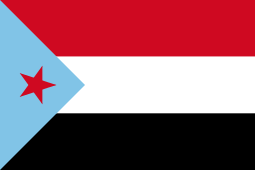

.svg.png)
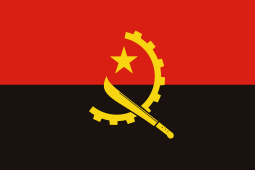
- Three others also boycotted the games, citing political reasons, but were not a part of the Soviet led boycott.
- One was largely unrecognized and therefore not allowed to compete, whether or not it wished to:
Non-boycotting socialist countries
Ten socialist countries, six from Africa, did not join the Soviet-led boycott and instead sent teams to the 1984 Summer Olympics.
.svg.png)

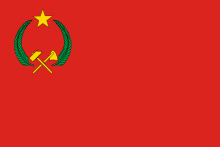
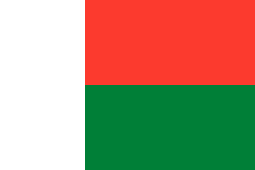
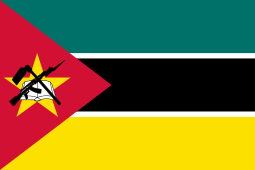

.svg.png)
.svg.png)
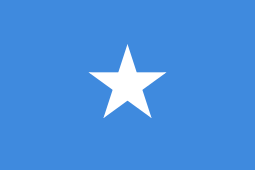
.svg.png)
In popular culture
In the Season 4 episode, "Lisa's First Word", of the U.S. television show The Simpsons, Krusty Burger is featured in a promotion where the characters get free food if they receive a slip that features an event that was "won" by the United States. The promotion was rigged, as was said in the episode, where every game card was to be in an event that "Communists never lose". However, almost immediately after that is said, word of the boycott is spread and the rigging backfires. Krusty Burger loses so much money on the promotion that Krusty publicly states that he will "personally spit in every 50th burger".
The Krusty Burger promotion paralleled a real-life McDonald's scratch-card promotion from the 1984 Olympics. The promotion was called "If the US Wins, You Win!" and gave away Big Mac hamburger sandwiches for every gold medal, fries for every silver medal, and Coca-Cola beverages for every bronze.[28]
The events of the boycott as well as the earlier 1980 Summer Olympics boycott were referenced in Metal Gear Solid V: The Phantom Pain, when the character Revolver Ocelot explains to Venom Snake what had transpired during the nine years he was in a coma.
The boycott of the '84 Summer Olympics also receives a brief offhanded mention in Peter Bogdanovich's 1990 comedy Texasville, which takes place earlier that summer. In an opening scene, a radio announcer mentions that while the majority of Soviet Bloc countries will not participate in the Games, Ceaușescu's Romania is expected to attend.
See also
References
- ↑ "No Boycott Blues". olympic.org. Retrieved 2017-01-06.
- 1 2 Burns, John F. (May 9, 1984). "Moscow Will Keep Its Team From Los Angeles Olympics". The New York Times.
- ↑ East Germany withdraws from Summer Games. The Evening Independent – May 10, 1984.
- ↑ Vietnam and Mongolia Also Withdraw From Olympics. Philadelphia Inquirer. May 12, 1984 – A07 National.
"Two more Communist countries dropped out of the 1984 Los Angeles Olympics yesterday, but the head of the International Olympic Committee promised to "fight to the last minute" to bring the Soviet Union and its allies to the Games." - ↑ Reich, Kenneth. Czechs and Laotians Join Boycott: China Confirms It Will Take Part in Summer Olympics. The LA Times. May 13, 1984. SD1.
- ↑ Lowitt, Bruce. ‘Afghanistan Joins Boycott’. The Victoria Advocate. May 14, 1984.
- ↑ Hungary 9th to Join Boycott of Olympics. The LA Times. May 16, 1984. A1.
- ↑ Barnard, William R. ‘Poland 10th to join Olympic boycott: Romania only Soviet ally still in Games’. The Deseret News.
- ↑ Maxwell, Evan. Cuba Joins Olympic Boycott: Serious Blow to Boxing and Baseball. The LA Times. May 24, 1984. 1.
- ↑ Marxist South Yemen Becomes 12th Country to Drop Out of L.A. Games. The LA Times. May 27, 1984. A27.
- ↑ N. Korea Joins Olympic Boycott. Miami Herald. June 3, 1984. 'While North Korea became the 13th nation to join the Soviet Union in boycotting the 1984 Summer Olympics in Los Angeles, Soviet star Sergei Bubka Saturday shattered his week-old world record in the pole vault'.
- ↑ Reich, Kenneth. Angola Becomes 15th Nation to Join Olympic Boycott. The LA Times. Jun 27, 1984. B3.
- ↑ Iran Announces Boycott Of the 1984 Olympics. The New York Times. Published: August 2, 1983.
- ↑ Ronen, Yehudit; 'Libya (Al-Jamhāhīriyaa al-'Arabiyya al-Lībiyya ash-Sha'biyya al-Ishtirākiyya)'; Middle East Contemporary Survey, Vol. 8, (1983-84); p. 595
- ↑ "Lodi News-Sentinel - Google News Archive Search". news.google.com. Retrieved 2017-07-19.
- ↑ "How USA and USSR boycotted the Olympics 16.02.2018". Retrieved 19 February 2018.
- ↑ Wilson, Jr., Harold Edwin (1993). "Prelude to the 1984 Olympic Games: The Soviet Boycott and Eastern Europe". The Golden Opportunity: A Study of the Romanian Manipulation of the Olympic Movement During the Boycott of the 1984 Los Angeles Olympic Games (Ph.D. thesis). Columbus, Ohio: Ohio State University. pp. 74–79. Document No. 9325618 – via ProQuest Dissertations & Theses Global Publishing.
- 1 2 Tyner, Howard A. U.S. Olympic boycott of 1980 led to Soviet decision of 1984. Chicago Tribune. May 9, 1984. D13.
- ↑ "L'actualité du sport en continu". L'Équipe (in French). Retrieved 2017-07-19.
- ↑ Lindsey, Robert (August 12, 1984). "Sucess (sic) of Games in Los Angeles Likely to Change Future Olympics". New York Times. Retrieved 19 February 2018.
- ↑ Congelio, Brad (2014). Before The World Was Quiet: Ronald Reagan, Cold War Foreign Policy, And The 1984 Los Angeles Olympic Summer Games (Ph.D. thesis). London, Ontario, Canada: University of Western Ontario. Document No. 3553 – via Western Electronic Thesis and Dissertation Repository.
- ↑ Reich, Kenneth. Olympic Entry Deadline Might Be Extended. The LA Times. May 30, 1984. OC3.
- ↑ ‘East Germany Joins L.A. Olympics Boycott’. Sarasota Herald-Tribune – May 11, 1984.
- ↑ "How the Russians break the Olympic rules". The Christian Science Monitor.
- ↑ "The Soviet Doping Plan: Document Reveals Illicit Approach to '84 Olympics". The New York Times.
- ↑ "The Soviet Doping Plan: Document Reveals Illicit Approach to '84 Olympics". nytimes.com. Retrieved June 6, 2017.
- ↑ "Bryan Fogel talks 1984 Summer Olympics boycott on The Jim Rome Podcast". jimrome.com. Archived from the original on November 22, 2017. Retrieved November 23, 2017.
- ↑ "Big Mac's Olympic Giveaway".